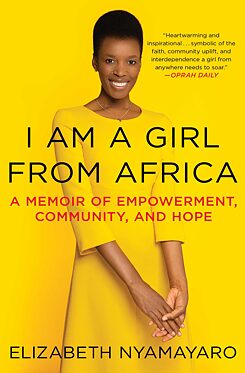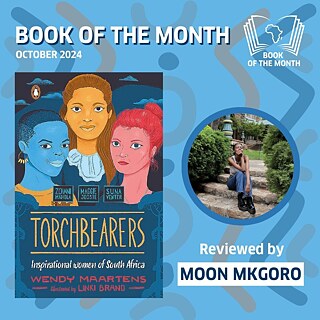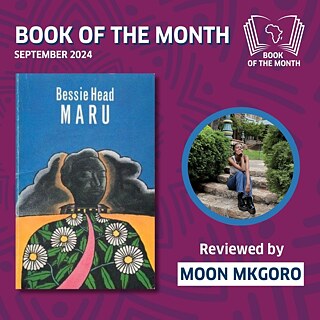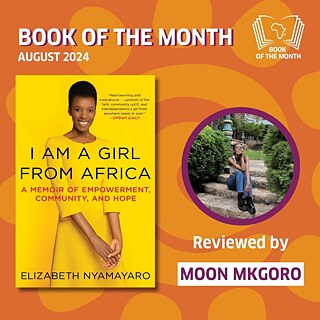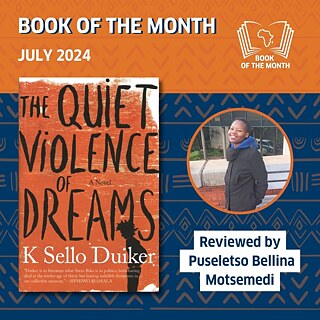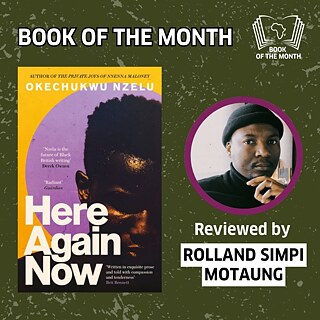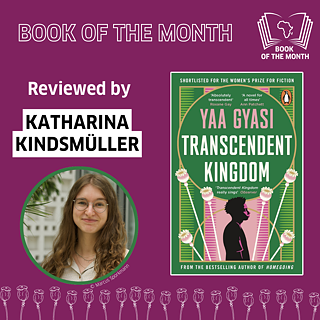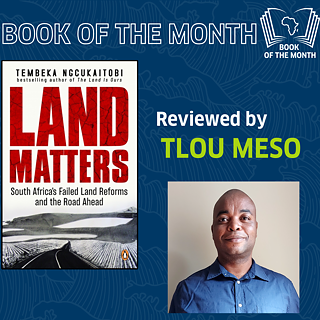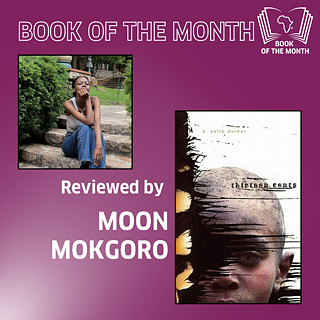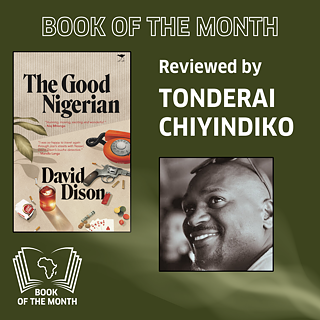August: I Am a Girl from Africa
by Elizabeth Nyamayaro
Review by Moon Mokgoro
“I Am a Girl from Africa reminds us that none of us are whole without the other.”
About the book and its author
In her memoir, ‘I Am a Girl from Africa’, Elizabeth Nyamayaro writes about her journey from living in poverty in Zimbabwe to becoming a political scientist - working on the African continent to help combat the rapid spread of HIV/AIDS, working to assist with maternal immortality rates in Uganda and Zambia, becoming a senior advisor at UN Women, and forming HeForShe - a solidarity and gender equality initiative.the story
As a young girl, during a drought in Zimbabwe, Elizabeth collapsed under a tree as a result of hunger and starvation. She was weak and in and out of consciousness. Moments later, a woman that Elizabeth did not recognise, gave her a meal. That woman was a UNICEF humanitarian aid worker who had gone to the villages in Zimbabwe to feed the people suffering from the drought. She saved Elizabeth’s life. This moment, this act of kindness, the woman telling her that "as Africans, we must uplift each other," led Elizabeth to discovering her purpose. She wanted to be like that woman, she wanted to work for the United Nations.
In a nonlinear narrative that shifts between her life growing up in Zimbabwe and her life in London, the book feels like a walk through and around time. In one part you’re reading about the villages in Zimbabwe where the sweetest guavas and mangoes grow, about Elizabeth's Gogo and the lessons she taught her. In the next, you’re reading about her new life in London, where she moved to make her dream of working for the United Nations a reality. Elizabeth worked as a cleaner in order to pay rent, and faced racism and discrimination based on the colour of her skin, the texture of her hair, and her foreign accent. Her journey wasn't as straightforward as she had hoped, but she persevered either way. Lessons from her stories of Zimbabwe are woven into the storytelling about her new life in London and later on in different parts of the world.
Throughout her journey, Elizabeth faced gut-wrenching rejection and discouragement. Outside voices were telling her that her dream of working for the United Nations was impossible because she was just a girl from Africa. Nothing deterred her. Years into her stay and eventual study, Elizabeth found herself in a job interview at the United Nations with Julia Cleves - an HIV and Aids policy advisor, who later became a friend and mentor to Elizabeth. She was far from qualified for the job until she recounted the story of how in her youth she assisted her Aunt Jane, a doctor, with her work helping HIV and Aids patients in Zimbabwe at a time when the country had one of the highest rates of infection worldwide. This on-the-ground experience gave Elizabeth an advantage, and she got the job as a research assistant. Her hard work and determination led to her working as a senior advisor for Phumzile Mlambo-Ngcuka, a former apartheid freedom fighter and executive director of UN Women. In working for UN Women, women around the world shared stories with Elizabeth that weaved together. Stories that were too similar, that made strikingly obvious the severe inequality women face worldwide. She discovered that no matter the location, women experience extreme discrimination, oppression and injustice. Women are punished for being women. Not long after hearing these stories, Elizabeth, alongside Emma Watson, developed the HeForShe solidarity movement and used
About the reviewer
-

Moon Mokgoro
Moon Mokgoro is a student and artist.© Moon Mokgoro Some of her favourite books include Play It As It Laysby Joan Didion and The Great Gatsby by F. Scott Fitzgerald. An author that she loves is June Jordan and in her free time Moon loves to draw, write, and experiment with photography.
More informationen
This review is the eighth in the new Book of the Month series from the Goethe-Institut South Africa. A new review by South Africans for South Africans will be published every month, check back regularly. All books can be borrowed from our library, the membership is free.
All "Book of the Month" reviews
Here you find all reviews of the series Book of the Month. All books are available in Goethe-Institute library in Johannesburg.
